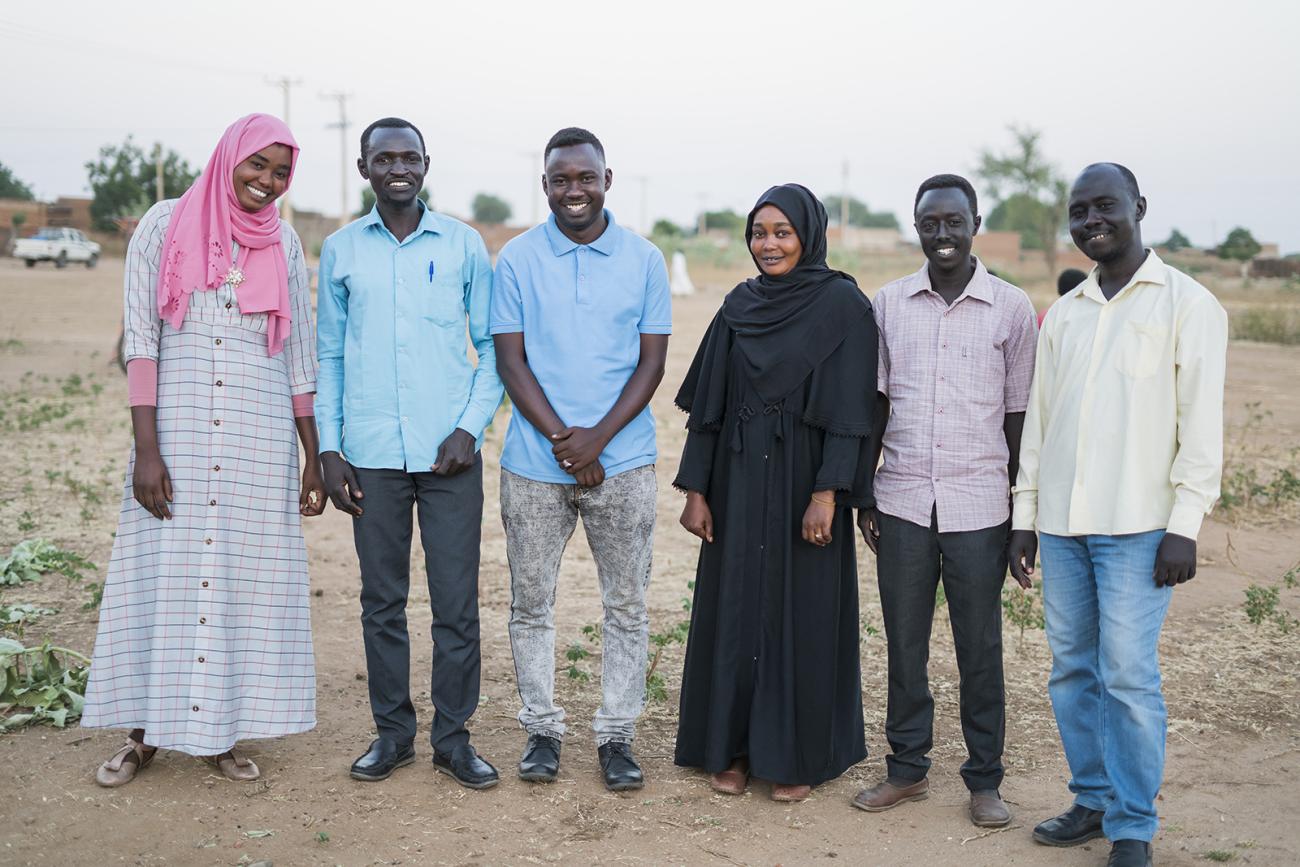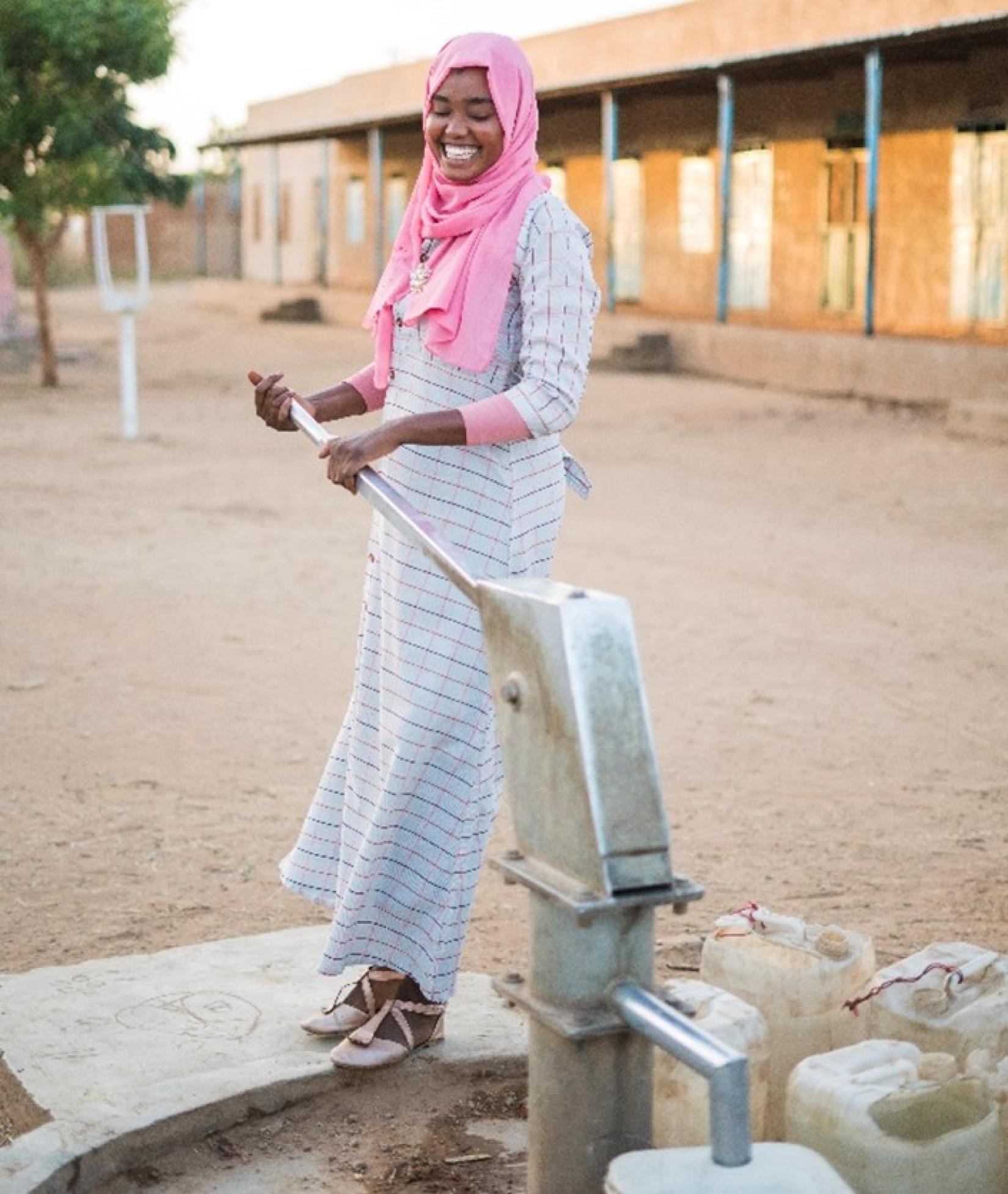Crossing lines: Development driving collaboration in South Kordofan’s disputed areas

Peace and stability are essential for development in Sudan. That makes them UNDP’s top priority.
- In Sudan’s South Kordofan, a history of conflict and underdevelopment means access to basic services is limited. While hostilities have ended, armed group SPLM-N (al-Hilu) retain control over several surrounding areas, with access limitations
- But, UNDP-supported community development in El Abbasiya – in Government-controlled territory – is creating opportunities for cross-border collaboration, and living condition improvements on both sides
- Community efforts have seen water access improved for 13,500 people in the area, and access to energy expanded for several communities
“The people here need training and opportunities, youth are energetic but need development projects. As the saying goes: ‘Don’t give me a fish but teach me how to fish’. We prefer development projects over humanitarian assistance because the latter make people dependent.” - Mamoun Salih Babiker, 27, community leader and local development project manager
At 27, State Ministry of Health and Social Welfare worker Mamoun Salih Babiker (above left) is passionate about creating opportunities and driving development in his community, addressing the significant needs that exist.
Improvements to limited services are being made – driven by a determined group of young people making up Al Abassiya’s Community Management Committee (above).
Describing the situation, Mamoun is frank: “There are opportunities in our area, like agriculture and business, but people need support. As a committee we work to help people. Our parents paid for our education, they need our help now, we are paying back less than they gave us.”
Mamoun leads the six-strong committee, one of 68 across Sudan, driving local development and peacebuilding initiatives. They draw on UNDP-provided management and mediation training, as well as agricultural machinery and supplies, including a generator.
Uniquely, this committee includes representatives from Al Abassiya – and SPLM-N (al-Hilu) – with both sides using the partnership to improve basic services, and relations between the two areas.
“We had existing water pumps in the village, but they had broken down, and increasing gasoline prices meant there was no fuel for the generator and pump and no revenue to cover these expenses,” explains Mamoun. “We offered to solve the problem.”
“We raised funds by renting out our tractor and accessories, had the pump fixed by local experts, and kept the tap free for people who couldn’t pay.”
“A barrel of water costs money – about 500SDGs – and some people cannot afford this. With the pump providing free water, people are able to use it for drinking water, home use and agriculture, and put that money towards other things.”

The committee also adopted a creative approach to helping young people and others on both sides of the disputed area.
Discussing energy access needs in his area, 26-year-old committee member and SPLM-N liaison Abdelbaqi Ahmed Abdelrahim (top image, right) says:
“The community has some needs, so we made the generator available to them [in SPLM-N (al-Hilu) areas], they can borrow it for events or to rent out if they need financial support.”
The committee decided to make the generator available free of charge, particularly for vulnerable groups like internally displaced people, to those in the SPLM-N (al-Hilu) areas who required it.
“The generator helps hundreds of people, anyone can ask for it, it moves back and forth a lot as needed, particularly for the wedding season in December.”
Originally from a nearby village, but now relocated to El Abbasiya, Abdelbaqi joined SPLM-N (al-Hilu) while studying at university. He felt compelled to support the committee as, “I stand by the community and youth – I believe in any project that will add value.”
Members of El Abbasiya’s Community Management Committee include: Mamoun Salih Babiker (Chairperson, 27), Abdelbaqi Ahmed Abdelrahim (26), Tarig Ahmed Adam, Hassan Mohamed Ebed, Najda Ali Adam (29, head of peacebuilding subcommittee), and Mona Adam Alamin.
Peace and stability are essential for development in Sudan. That makes them UNDP’s top priority. Our approach provides support on the national, state and local levels, combining efforts to address conflicts and their root causes. We aim to improve access to basic services, employment opportunities and fulfilment of essential needs for people all over the country. Additionally, we implement peacebuilding initiatives and provide conflict mediation to address problems when they occur. In 2021, UNDP supported over 1.5 million of Sudan’s most conflict-vulnerable people through stabilization projects.





